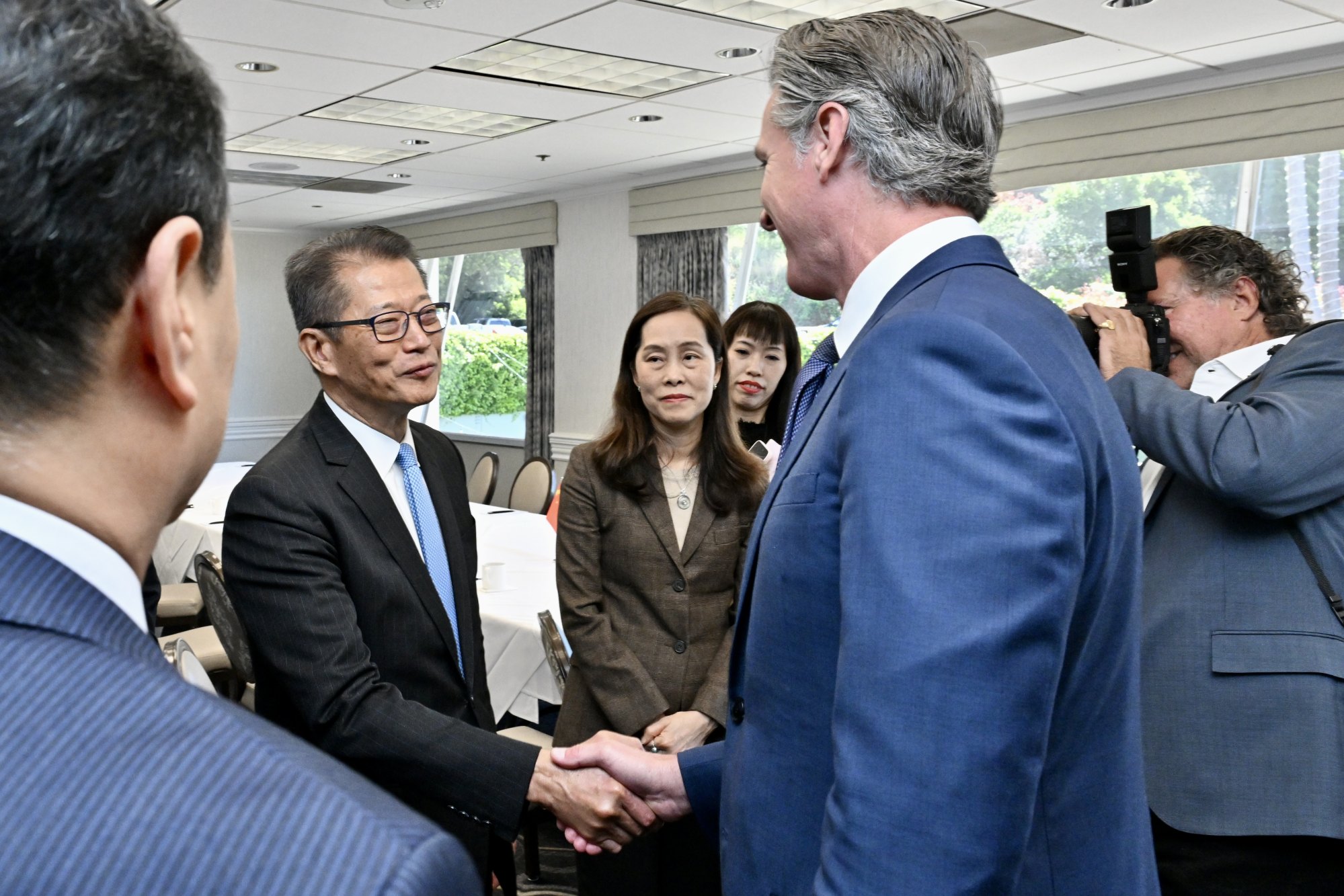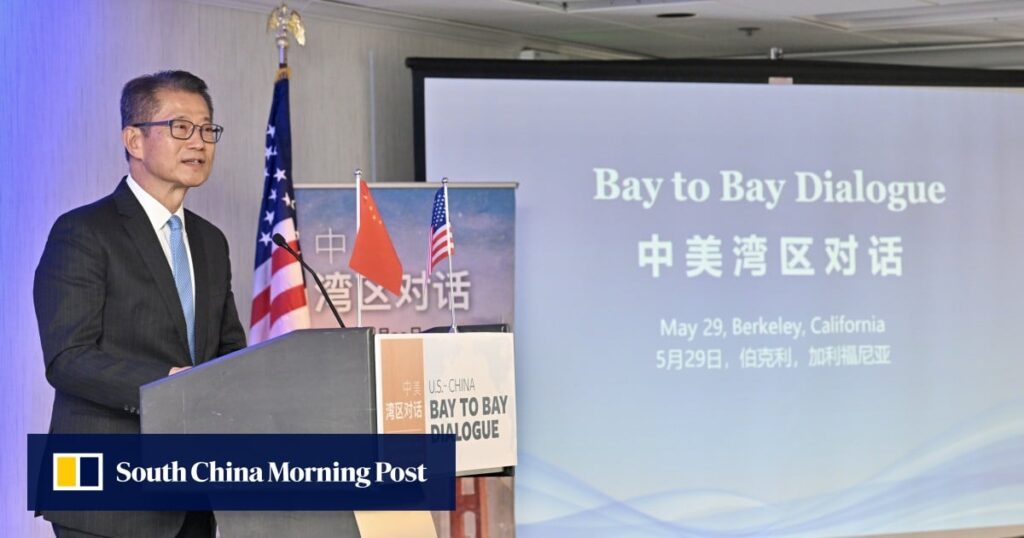The latter was selected and supported by the Hong Kong Science Park to participate in a six-month exchange program with peers in Silicon Valley and other technology companies around the San Francisco Bay Area.
“[Entrepreneurs from both countries] “They all recognised the wealth of opportunities in each other's Gulf regions. They expressed great interest in accessing potential new customers and exploring collaborations in each other's markets,” Chan said.
He added that the possibility of such cooperation was not by chance, but arose from the “mutual attraction” of the two Gulf regions' “respective characteristics and advantages.”
Representing the U.S.-China High-Level Meeting on Regional Climate Action, Chan said participants from the Guangdong-Hong Kong-Macau Greater Bay Area and the San Francisco Bay Area “unanimously” recognized the “great potential” for cooperation in tackling climate change.

Commenting on the meeting, Zhang said it witnessed the signing of cooperation agreements and memorandums of understanding between U.S. and Chinese partners in a range of areas to boost mutual investment in technology and climate change efforts.
“Practical topics are always a good start to positive collaboration,” he wrote in a blog post.
Chan also noted that in the area of green development, the two Gulf regions inspire each other by providing new perspectives and ideas, “enriching” approaches to problem-solving.
“Hong Kong is leading the issuance of green and sustainable bonds in Asia, driving the greening of the region, while California is promoting carbon market trading through policy frameworks and measures, accelerating carbon reduction efforts in related industries. This is an area where we can draw valuable insights.”
Zhang also said participants from both China and the US believe that while the two Gulf regions share similarities, “they also have their own unique characteristics and advantages in terms of talent, technology and capital.”
In a previous interview with The Washington Post, he said the visit was important in effectively promoting the region of 87 million people as part of Beijing's plan to turn it into a tech powerhouse comparable to America's Silicon Valley by 2035.
Asked whether the US businessmen and politicians he met had expressed concerns about Hong Kong's new national security law, Chan said “nobody is concerned about national security” and that their focus was very much on “business-related issues”.
“In fact, the concerns and concerns of the business community here are Hong Kong's stability, the overall business environment, the impact of high interest rates on Hong Kong, and the performance of the stock market and property market,” he said.
Meanwhile, Financial Services Secretary and Treasury Secretary Christopher Hui Ching-yu will leave Hong Kong on Sunday evening for a three-country visit to the Netherlands, Spain and Portugal.
He will drive Hong Kong's fintech scene, particularly the development of the virtual asset industry and latest financial innovations for a sustainable Web3 ecosystem including payments and tokenization of real-world assets.
Hui is scheduled to return to the city on June 8.


